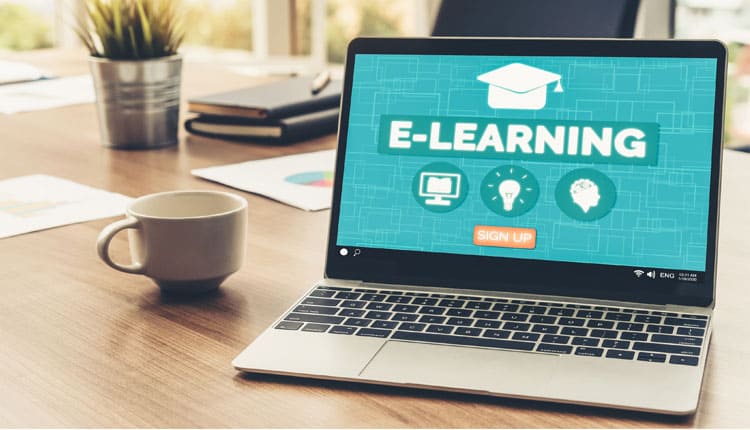The world of education is undergoing a fundamental transformation, driven by the rapid adoption of online learning. E-learning, once seen as a supplement to traditional education, has become a primary mode of instruction for millions of students and professionals across the globe. This shift has been accelerated by the COVID-19 pandemic, which forced educational institutions to rapidly adapt to virtual teaching. Beyond the pandemic, the rise of online education reflects deeper, long-term trends in how people are learning in today’s interconnected, digital age. In this blog, we’ll explore the major global trends shaping the future of online education.
The Expansion of Learning Management Systems (LMS)
At the heart of the e-learning revolution are Learning Management Systems (LMS), which provide the backbone for online education. LMS platforms, such as Moodle, Blackboard, and Google Classroom, have made it possible for schools, universities, and businesses to deliver courses and training programs entirely online. These platforms offer a range of tools that facilitate the management of courses, the distribution of learning materials, and the tracking of student progress.
A major benefit of LMS is the flexibility it provides. Students can learn at their own pace, access course materials on-demand, and participate in online discussions and group work. For educators, LMS simplifies administrative tasks and enables the delivery of multimedia content, quizzes, and assessments. In an increasingly globalized world, LMS platforms have made it easier to reach a diverse, geographically dispersed student body.
The Rise of Video-Based Learning
One of the most significant trends in online education is the shift toward video-based learning. Video platforms such as Zoom, Microsoft Teams, and Google Meet have become essential tools for delivering live, interactive lessons. These tools have enabled teachers and students to maintain face-to-face communication, creating a virtual classroom experience that mimics traditional learning environments.
Pre-recorded video lectures are also a powerful tool, allowing students to revisit lessons on their own schedule. Platforms like YouTube and specialized educational sites like Khan Academy provide a vast array of free educational content. For many learners, the ability to pause, rewind, and review information at their own pace is a key advantage of e-learning.
The Global Reach of E-Learning
E-learning has opened the doors to education for people all over the world, particularly in developing countries. Mobile learning is a growing trend in regions where access to computers or stable internet connections is limited. In these areas, smartphones and mobile apps are becoming essential tools for education. Educational apps and platforms optimized for mobile devices allow students in remote areas to access quality learning resources.
Moreover, the affordability of mobile data in certain countries makes e-learning an attractive option for students and teachers alike. Governments and international organizations are working together to increase digital infrastructure and internet access in underserved regions, further expanding the reach of online education.
Massive Open Online Courses (MOOCs)
Massive Open Online Courses (MOOCs) have revolutionized higher education by making world-class courses accessible to anyone with an internet connection. Platforms like Coursera, edX, and Future Learn offer courses from top universities and institutions, often for free or at a significantly reduced cost compared to traditional degree programs.
MOOCs allow learners to explore new subjects, develop specialized skills, or even earn certifications from prestigious institutions. This democratization of education means that individuals from all over the world can access high-quality content that was once reserved for a select few. In addition, MOOCs offer learners the flexibility to study at their own pace, making it easier for working professionals to balance education with their jobs and other commitments.
Personalized Learning through AI and Data
Artificial Intelligence (AI) is playing an increasingly important role in online education. AI-powered platforms can personalize the learning experience by adapting to the individual needs and preferences of students. For example, AI systems can analyze how students interact with course materials and then recommend additional resources or adjust the difficulty level of the content based on their performance.
This level of personalization helps students learn more effectively and keeps them engaged. Rather than a one-size-fits-all approach, e-learning platforms can now provide tailored content that matches each learner’s pace and learning style. This has the potential to significantly improve learning outcomes and make education more inclusive.
Micro-Credentials and Skill Development
As the demand for specific, marketable skills grows, so does the trend toward micro-credentialing. Micro-credentials are short, focused courses that provide learners with targeted knowledge in a particular area. These courses are often designed to help individuals acquire skills that are directly applicable to their careers.
Many online platforms, including LinkedIn Learning and Udacity, offer micro-credentials in fields such as data science, digital marketing, and software development. These credentials allow learners to gain valuable skills without committing to a full degree program. In a rapidly changing job market, micro-credentials offer a flexible and affordable way to stay competitive and upskill.
E-Learning in Corporate Training
The corporate sector has also embraced e-learning for employee training and professional development. Online training programs have become the norm for companies seeking to upskill their workforce without the need for in-person instruction. Corporate e-learning offers a cost-effective solution that allows employees to learn at their own pace while continuing to perform their job responsibilities.
Many companies are investing in bespoke e-learning platforms or using third-party services to offer online courses tailored to their specific needs. In industries where ongoing education is critical, such as healthcare and technology, e-learning provides a way to ensure employees are continually improving their skills and staying up-to-date with industry standards.
Challenges and the Future of E-Learning
While e-learning offers numerous benefits, challenges remain. The digital divide—where certain populations lack access to the necessary technology or reliable internet—remains a significant barrier, particularly in rural areas and developing nations. Moreover, online education can sometimes lead to reduced social interaction, which is critical for developing communication skills and teamwork.
Despite these challenges, the future of e-learning looks bright. Advancements in technology, including virtual reality (VR) and augmented reality (AR), promise to make online learning more immersive and interactive. VR and AR could allow students to participate in virtual field trips, conduct experiments in virtual labs, and engage with complex subjects in a hands-on way, even in a digital space.




